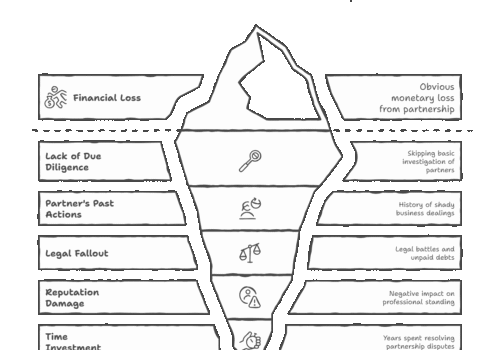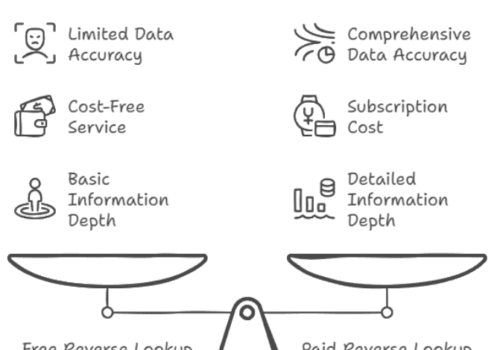Can You Really Know Everything About Someone Online? (An Expert’s Take)

I’ll be honest with you – I’m getting tired of people asking me if you can “find everything” about someone online. Last week alone, three different clients asked me this exact question. And every time, I have to explain that no, the internet isn’t some magical repository where everyone’s deepest secrets are just waiting to be discovered.
Look, I get why people think this. We see it in movies all the time – some hacker character types furiously for thirty seconds and suddenly has access to someone’s entire life history. But after doing this work for over a decade, I can tell you that’s complete nonsense.
Don’t get me wrong – there’s definitely a lot you can find out about people online. More than most people realize, actually. But the idea that you can uncover someone’s complete dossier? That’s Hollywood fantasy, and it’s time we had an honest conversation about what’s really possible.
The Digital Footprint: What’s Out There?
Here’s the thing about digital footprints – they’re everywhere, and most people have no clue how extensive theirs really is. Every single thing you do online leaves a trace. That Amazon purchase you made at 2 AM? Logged. The article you read about relationship advice? Tracked. Even just browsing websites creates data about you.
I was working with a client last month who swore up and down that they were “super private” online. They barely used social media, never posted photos, the whole nine yards. But when I started digging (with their permission, obviously), I found property records, voter registration, old forum posts from 2015, and even a mention in their college newspaper from twenty years ago.
The crazy part isn’t just what you put out there yourself – it’s what other people share about you. Your friend tags you in a photo at a restaurant. Your coworker mentions you in a LinkedIn post. Your neighbor leaves a review mentioning you helped them move. All of that becomes part of your online presence whether you like it or not.
And here’s what really gets me – people think using incognito mode somehow makes them invisible. It doesn’t. You’re still logging into your email, making online purchases, using apps that track your location. Incognito mode just means your browser isn’t saving your history locally. The rest of the internet? Still tracking you.
Publicly Accessible Data
This is where things get interesting, and frankly, where most people get pretty uncomfortable. There’s an enormous amount of information about you that’s completely public and totally legal to access. I’m talking about stuff that feels private but is actually part of the public record.
Property records are my favorite example because they shock people every time. I can usually find out when someone bought their house, how much they paid for it, their previous addresses, and sometimes even details about mortgages or liens. All completely public information that anyone can access.
Voter registration is another big one. In most states, this information includes your full name, address, party affiliation, and voting history (not who you voted for, but whether you voted in each election). Some states even include your phone number.
Court records? Also mostly public. Got divorced? That’s probably searchable online. Had a small claims dispute? Yep, that too. Obviously, more serious criminal matters vary by jurisdiction, but a surprising amount of legal information is accessible to anyone who knows where to look.
I had one client who was convinced their bankruptcy from fifteen years ago was completely confidential. Took me about ten minutes to find the filing online, complete with all the financial details that were part of the public record.
Social Media & Professional Profiles
Okay, this one seems obvious, but stick with me because there’s more to it than most people think. Your social media profiles are obviously the most visible part of your online presence, but the real insights come from patterns and connections that people don’t think about.
I once worked on a case where I needed to verify someone’s claimed work history. Their LinkedIn looked legit, but something felt off. So I started looking at the timing of their posts, who was endorsing their skills, and when those endorsements were made. Turns out, they’d embellished their experience pretty significantly – the endorsements were all from the same two people, and they were made right before job applications.
But social media goes way beyond just Facebook and LinkedIn. There’s Instagram, Twitter, TikTok, Reddit, specialized forums, even comment sections on news articles. I’ve found crucial information in the weirdest places – someone’s Goodreads reviews revealed their location and schedule, another person’s Strava running data showed their daily routine.
The privacy settings matter, obviously, but they’re not foolproof. People forget that they commented on public posts, or that they were tagged in photos by friends with different privacy settings. Your digital presence extends way beyond just what you post directly.
News, Blogs, & Forums
This is honestly where some of the most interesting stuff turns up. Local newspapers, community blogs, industry publications, specialized forums – they’re all goldmines of information that most people completely overlook.
Small-town newspapers are particularly useful because they cover everything. High school sports teams, local business openings, charity events, city council meetings. I’ve found mentions of people in articles about everything from volunteer work to minor traffic accidents.
Forums are fascinating because people tend to be more open in specialized communities. Someone might be super private on Facebook but very chatty on a forum about their hobby or profession. I’ve learned about people’s career changes, health issues, relationship problems, and financial situations just from forum posts they made years ago.
The key is understanding that this information exists in scattered pieces across the internet. It’s not organized in one convenient location – you have to know how to connect the dots.
The Illusion of Omniscience: What You Can’t Easily Find
Alright, time for some reality checks. Despite what TV shows want you to believe, there are massive limits to what you can actually find online. And I mean massive.
The biggest misconception I encounter is people thinking that if information exists somewhere, it must be accessible online. That’s just not true. There are legal barriers, technical limitations, and honestly, tons of information just isn’t digitized at all.
I can’t tell you how many times clients have been disappointed when I explained that no, I can’t access someone’s bank statements, or medical records, or private text messages. Those things exist digitally, but they’re protected by laws and security measures for good reason.
The “Deep Web” vs. “Dark Web” Misconception
Let me clear something up that drives me absolutely crazy. The terms “deep web” and “dark web” get thrown around constantly, usually by people who have no idea what they actually mean.
The deep web is just the part of the internet that search engines can’t index. Your online banking? That’s deep web. Your private Instagram account? Deep web. Your email inbox? Deep web. It’s not mysterious or sinister – it’s just password-protected or otherwise inaccessible to search engines.
The dark web is a tiny portion of the deep web that requires special software like Tor to access. Yes, some illegal stuff happens there, but it’s not this massive underground library of everyone’s secrets that movies make it out to be.
Most of the “hidden” information people imagine is just sitting behind normal login screens or privacy settings. Your medical records aren’t lurking in some dark corner of the internet – they’re in your doctor’s secure database where they belong.
Barriers to Entry: Paywalls, Permissions, and Private Databases
A huge amount of information exists online but is locked behind legitimate barriers. Professional background check companies pay thousands of dollars for access to databases that regular people can’t reach. Even I, doing this professionally, can’t just waltz into someone’s financial records or employment history.
Sometimes it’s as simple as a paywall. Newspaper archives, professional databases, detailed court records – they often require subscriptions that can cost hundreds or thousands of dollars annually. The free stuff you can find online is really just scratching the surface.
And then there are permission barriers. Medical records, educational transcripts, detailed employment history, financial information – all of this requires proper authorization to access legally. Anyone claiming they can get you this information without proper permissions is either lying or breaking the law.
The Ephemeral Nature of Online Information
Here’s something that surprises people: the internet isn’t actually permanent. I know everyone says “nothing ever disappears from the internet,” but that’s not entirely true.
People delete their social media accounts. Websites shut down. Companies purge old records. I’ve lost count of how many times I’ve found a reference to some piece of information that no longer exists anywhere online.
I was working on a case last year where I needed to find historical information about a company’s founding team. I found references to a detailed “About Us” page from their website, but when I went to look for it, the company had completely redesigned their site and removed all the historical information. Even the Internet Archive didn’t have a complete copy.
Social media posts get deleted constantly. People clean up their online presence, change their privacy settings, or just abandon old accounts. What was publicly available last month might be completely inaccessible today.
Beyond the Surface: Strategies for Deeper Dives (Ethical Considerations Apply!)
Okay, so within legal and ethical boundaries, there are definitely ways to dig deeper and find more comprehensive information online. But I want to be crystal clear here – everything I’m about to discuss is completely legal and ethical. This isn’t about hacking or accessing private information.
The secret isn’t having access to special databases or secret techniques. It’s about knowing how to use publicly available tools more effectively than the average person.
Advanced Search Operators & Niche Search Engines
Most people use Google like they’re still in 1999. They type in a few words and hope for the best. But Google has incredibly powerful search operators that can dramatically improve your results.
Want to find every mention of someone on a specific site? Use site:linkedin.com “John Smith” to search only LinkedIn. Looking for documents that might mention someone? Try filetype:pdf “John Smith” to find PDF files. Want to exclude certain terms? Use the minus sign: “John Smith” -football if you’re not looking for the football player.
I use these operators constantly. Last month I was trying to verify someone’s claimed education background. A regular Google search turned up nothing useful, but using site:university.edu “John Smith” found an old faculty newsletter that mentioned him as a graduate student.
Beyond Google, there are specialized search engines for different types of information. Pipl for people searches, TinEye for reverse image searches, Wayback Machine for historical website data. Each one has its strengths and limitations.
Cross-Referencing & Pattern Recognition
This is where the real detective work happens. Information online rarely exists in isolation – it’s connected to other pieces of data that can help verify or expand what you’re finding.
I keep detailed notes when I’m researching someone. Names, usernames, locations, dates, relationships – anything that might connect to other information. Then I look for patterns and consistencies across different sources.
For example, I once found someone using the same unusual username on multiple platforms. That username led me to forum posts, social media accounts, and even online shopping reviews that painted a much more complete picture of their interests and activities.
The key is being systematic about it. I use spreadsheets to track information and spot connections that might not be obvious when you’re looking at individual pieces of data.
Leveraging Public Archives & Cached Pages
Sometimes the most valuable information isn’t current – it’s historical. The Internet Archive’s Wayback Machine is incredibly useful for seeing what websites looked like in the past, even if they’ve been completely changed or taken down.
Google also keeps cached versions of web pages, which can be helpful if a site is down or has been updated recently. I’ve used cached pages to recover information that was temporarily removed or to see how content has changed over time.
These tools saved my butt on a project last year. I needed information from a company’s old website that had been completely redesigned. The current site had none of the historical information I needed, but the Wayback Machine had archived versions going back several years.
The Ethical Tightrope: When Information Becomes Intervention
Look, I need to be straight with you about something. Just because you can find information doesn’t mean you should use it. The ability to research people online comes with real ethical responsibilities, and this is something I think about every single day in my work.
There’s a huge difference between legitimate research for business purposes and stalking someone because you’re curious about them. Intent matters, and so does what you do with any information you find.
Privacy vs. Public Interest
Just because information is technically accessible doesn’t make it fair game for any use. Context matters enormously.
Someone’s professional LinkedIn profile? That’s meant to be public. A forum post they made ten years ago under an obscure username? Technically findable, but using that information could be problematic depending on the context.
I always ask myself: what’s my legitimate reason for seeking this information? Am I helping a client make an informed business decision, or am I just being nosy? The answer shapes everything about how I approach the research.
Legal Boundaries & Consequences
Even publicly available information can get you in legal trouble if you misuse it. Laws like GDPR in Europe and CCPA in California regulate how personal data can be collected and used, even when it comes from public sources.
And harassment laws definitely apply to online behavior. Using publicly available information to repeatedly contact, threaten, or intimidate someone is still harassment, regardless of where you found the information.
I’m not a lawyer, but I’ve seen enough cases to know that “it was publicly available” isn’t a defense if you use information inappropriately. Understanding these boundaries isn’t just about avoiding legal trouble – it’s about being a decent human being.
The Human Element: Empathy and Impact
At the end of the day, there’s a real person behind every search result and social media profile. Before you go digging into someone’s online presence, think about how you’d feel if someone was doing the same to you.
Would you be comfortable if a stranger was piecing together information about your life from old forum posts and public records? How would you feel if someone took something you posted years ago and used it out of context?
These aren’t just academic questions. The information you find and how you use it can have real impacts on real people’s lives.
Protecting Your Own Digital Privacy
Given everything we’ve talked about, it makes sense to take steps to protect your own online privacy. This isn’t about being paranoid – it’s about being smart in an increasingly connected world.
Audience-First Privacy Settings
Start with the basics: actually look at your privacy settings on every platform you use. And I mean really look at them, not just the main page. Facebook alone has dozens of different privacy controls buried in sub-menus.
But don’t just set them once and forget about them. These platforms change their policies and settings regularly, sometimes reverting your choices back to their defaults without telling you clearly.
I review my privacy settings every few months, and I’m always finding new options or discovering that something I thought was private is actually visible to a much wider audience than I intended.
Mindful Sharing & “Think Before You Post”
This sounds obvious, but it’s worth emphasizing: assume that everything you post online will eventually become public. Privacy settings change, accounts get hacked, people take screenshots. There’s no guarantee that private content stays private.
I’ve gotten in the habit of pausing before I post anything and asking myself: would I be okay if this showed up in a news article about me? If the answer is no, I don’t post it.
This applies to comments too, not just original posts. That sarcastic comment you left on your friend’s political post? That check-in at a bar during work hours? All of these contribute to your digital footprint in ways you might not expect.
Regular Digital Footprint Audits
Just like you should check your credit report annually, you should regularly search for information about yourself online. Google your name, see what comes up, and think about what others might conclude from what they find.
If you find information that’s outdated, inaccurate, or just problematic, take steps to address it. Sometimes you can contact website owners directly. Other times you might need to create new, positive content to push negative results further down in search rankings.
I keep a simple list of my online accounts and check on them periodically. It’s amazing how often I find accounts I’d forgotten about or discover that settings have changed without me realizing it.
Conclusion: The Evolving Landscape of Online Information
So here’s my final answer: can you really find out everything about someone online? No. Absolutely not. Despite what movies and TV shows suggest, there are enormous gaps in what’s actually accessible through online research.
But – and this is important – there’s still way more information available than most people realize. Digital footprints are complex, revealing, and often surprising in their scope. What you can find might not be everything, but it’s probably more than you expect and definitely more than the average person realizes exists.
The landscape keeps changing too. New platforms emerge, privacy laws evolve, and our understanding of digital rights continues to develop. What’s accessible today might not be tomorrow, and vice versa.
My advice? Be realistic about what online research can and can’t accomplish. Respect legal and ethical boundaries. And take steps to protect your own digital privacy, because whether you realize it or not, you’re leaving traces everywhere you go online.
What’s been your experience with this stuff? Ever been surprised by what you found (or couldn’t find) about yourself online? Let me know in the comments – I’m genuinely curious about how other people navigate these issues.




